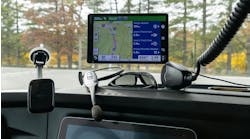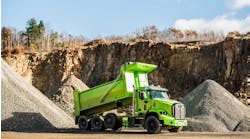Editor’s note: This is the second part in a series on blockchain and its role in trucking. Read Part 1 here.
Originally developed as the accounting platform for Bitcoin, the virtual currency, blockchain is a decentralized ledger of transactions. It creates records that cannot be changed or deleted, with verification accomplished through a network of participants, or distributed nodes rather than through a third party, such as a bank or credit card company. This process is meant to ensure that transactions cannot be tampered with, providing a means for companies or people who may not know each other to immediately establish trust and do commerce.
Documents like a bill of lading or electronic manifest are exchanged numerous times during transit between shippers, carriers, Customs, insurance, banks, and ports. So even when there is an established relationship, blockchain proponents say the technology ensures real-time visibility and financial accuracy for all parties.
For freight transportation, the implementation of blockchain is expected to focus on using the technology to reduce or remove third-party costs, better protect connected vehicles, and increase transparency.
“Researchers believe based on interviews conducted during this research that it is conceivable, over time, that blockchain will touch many transportation applications and become a ubiquitous technology,” the Texas A&M Transportation Institute wrote in a 2018 report.
Working to make that a reality is the Blockchain in Transport Alliance (BiTA) and its more than 450 global members, covering every transportation mode. In March, the BiTA Standards Council Board approved the creation of its first official standard, providing a road map for future data component development.
BiTA is working with the IEEE Industry Standards and Technology Organization to create “open source and royalty-free standards” that will allow for interoperability between participants in the supply chain.
“Over the next five years, we can envision the massive adoption of several digital technologies, including blockchain, that will provide for the nearly seamless transportation of goods from origin to destination — spanning administrative, custodial, financial, regulatory, and transportation processes,” a BiTA spokesman said in an email.
One company not interested in joining BiTA is LaneAxis, said founder and CEO Rick Burnett. LaneAxis believes blockchain can remove brokers and third-party logistics firms that “have held an iron-grip on the industry for far too long,” he said.
The company’s “focus is solely on leveraging blockchain technology to create a shipper-to-carrier direct network that will eliminate the need for freight brokers and 3PLs that charge exorbitant rates for substandard services,” Burnett added.
This is the second part in a series on blockchain and its role in trucking. Read Part 1 here. Part 3 will be published tomorrow.



